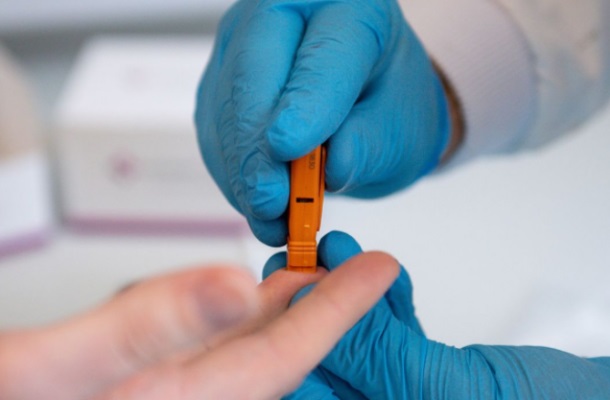Discover how Artificial Intelligence (AI) can predict Parkinson's disease up to seven years before symptoms appear, potentially revolutionizing early
Discover how Artificial Intelligence (AI) can predict Parkinson’s disease up to seven years before symptoms appear, potentially revolutionizing early diagnosis and treatment.
Introduction
In a groundbreaking development, scientists have harnessed the power of Artificial Intelligence (AI) to identify a biological signature of Parkinson’s disease. This advancement could lead to a simple blood test capable of predicting the condition at least seven years before symptoms manifest, offering new hope for early intervention and treatment.
The Promise of AI in Parkinson’s Prediction
AI Identifies Key Biomarkers
Researchers from University College London and University Medical Center in Goettingen, Sweden, have utilized AI to uncover eight key proteins, or “biomarkers,” present in the blood of individuals with Parkinson’s disease. This discovery, reported by The Telegraph, paves the way for early detection, which is crucial in managing this progressive neurodegenerative disorder affecting over 150,000 people in the UK alone.
Understanding Parkinson’s Disease
The Global Impact of Parkinson’s
Parkinson’s disease is the fastest-growing neurodegenerative disorder globally. It encompasses a wide range of conditions, with the most common symptoms including movement issues, tremors, and muscle stiffness. Currently, there are no drugs available that can slow or halt the progression of Parkinson’s, complicating efforts to develop preventive treatments.
Challenges in Early Detection
The primary obstacle in developing effective treatments is the inability to predict who will develop Parkinson’s disease. Existing diagnostic methods are invasive and often confirm the disease only after significant progression. This new AI-based approach offers a promising alternative.
How AI is Revolutionizing Early Diagnosis
Examining Blood Samples with AI
The researchers applied their AI tool to analyze blood samples collected a decade ago from individuals with a sleep condition known as rapid eye movement disorder. Remarkably, the AI accurately predicted which patients later developed Parkinson’s disease. “By determining the proteins in the blood, we can identify potential Parkinson’s patients several years in advance,” explained Dr. Michael Bartl of UMC Goettingen. This early identification could allow for the administration of therapies at a stage where they might slow the disease’s progression or even prevent its onset.
Implications for Future Treatments
Towards a Practical Blood Test
While this discovery is promising, further work is required to validate the accuracy of these tests and to develop a version suitable for clinical use. In the short term, this blood test could replace the current invasive lumbar puncture technique used to confirm Parkinson’s disease, making early diagnosis more accessible and less burdensome for patients.
Debate on Early Diagnosis
Despite the potential benefits, the idea of early diagnosis raises ethical questions. Gary Shaughnessy, diagnosed with Parkinson’s nine years ago, expressed mixed feelings: “I hate having Parkinson’s, so why would I want to know I have it for one second longer than is absolutely necessary?” However, he acknowledges that early knowledge of the disease could empower individuals to take actions that alleviate symptoms and improve quality of life.
Conclusion
The AI-driven identification of biomarkers for Parkinson’s disease represents a significant leap forward in early diagnosis and treatment. By predicting the disease years before symptoms appear, this innovative approach holds the potential to revolutionize how we manage and treat Parkinson’s. As researchers continue to refine this technology, the prospect of a simple blood test could transform the landscape of neurodegenerative disease care, offering hope to millions affected by Parkinson’s worldwide.

COMMENTS